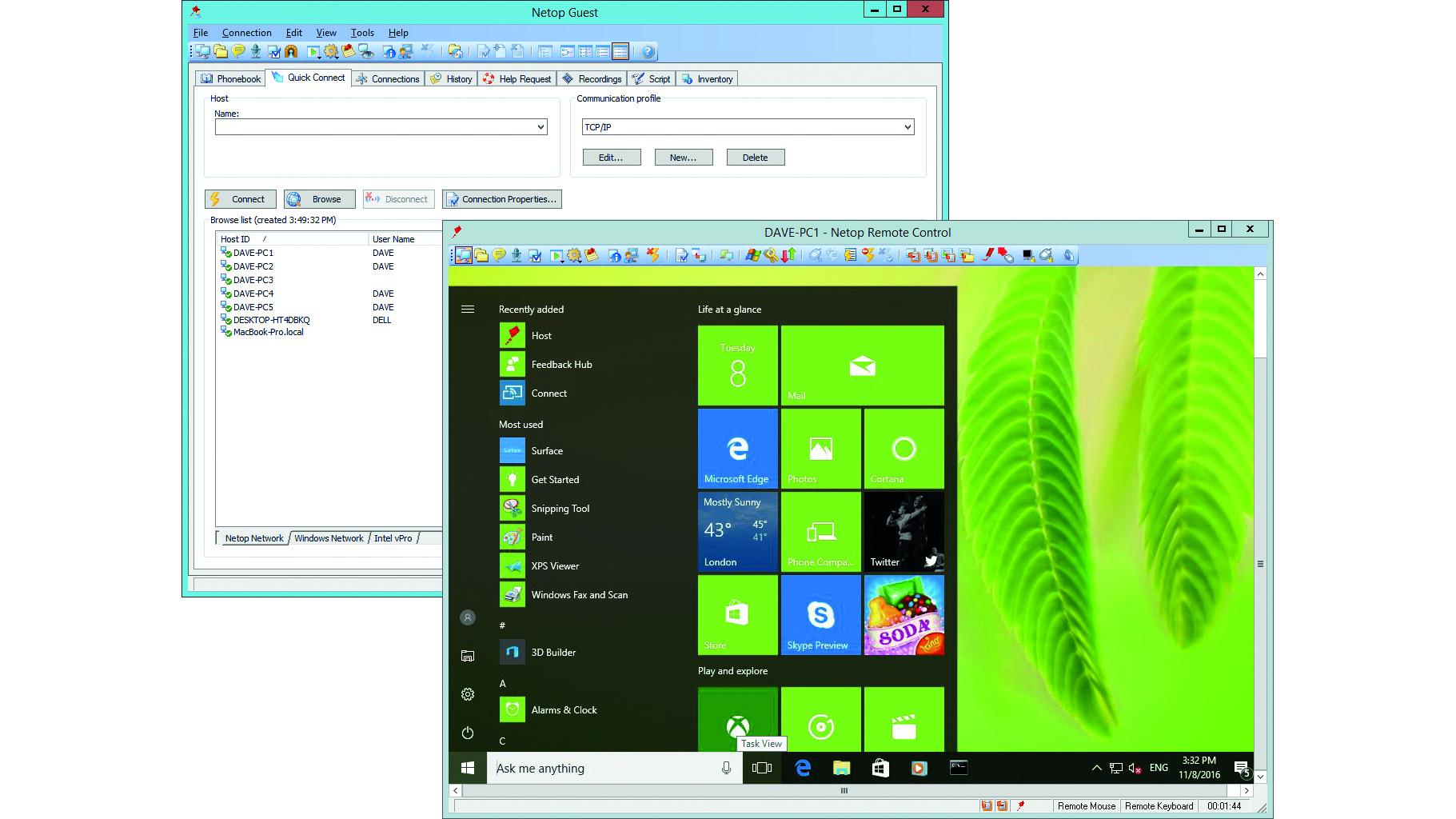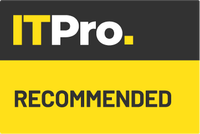Netop Remote Control 12.5 review
A highly flexible, well- featured and secure remote support solution that’s priced right for SMBs


Netop Remote Control will appeal to businesses that want a feature-rich remote support solution with a sharp focus on security. It's very affordable, and the Portal service makes it simple to extend support into the cloud.
-
+
Speedy setup; Lots of connection options
-
-
Netop Portal is fairly simple

Security is a big concern with remote access, but Netop Remote Control impressed us with its extensive range of anti-intrusion measures. We could password-protect clients, require Windows login credentials to authenticate, integrate with Active Directory (AD), restrict support staff capabilities - and, as if that weren't enough, use the optional Security Server module to log and manage all authentication.
Netop also offers a wide range of connection options, making it a great choice for businesses that want to extend support beyond the LAN. Each client system simply requires the host component to be installed, which must be password-protected. The host took two minutes to set up on each of our Windows 10 and OS X El Capitan clients (Sierra support is coming soon).
A wizard then helped us with our connection choices. For large deployments, Netop's Pack'n Deploy tool helps by pushing the host to multiple Windows systems, complete with custom configurations.
Each host can be set to connect only to the guest console, or you can select the Netop Portal option to use the cloud-based service, allowing you to support users over the internet. Choosing this adds communications profiles for both modes to the host, so it can be accessed using either method.
Guest access controls are remarkably flexible. Even the default host privileges allowed us to decide precisely what our support staff can and can't do. We could block access to specific input devices, control file-transfer permissions, decide whether they could run programs and protect the link using AES-256 encryption.
Different settings can be applied for AD authentication or Netop's security server, and you can defeat brute-force password guessing by limiting the number of failed login attempts. You can also require the host system to be restarted or locked when a remote session finishes.
When it comes to connecting, the guest console is easy to use. It browses the local network and lists discovered hosts ready for selection. Our only quibble is that its OS identification skills could use some honing: all our Windows 10 hosts were reported as running Windows NT.
You can simply double-click on a host from the list to begin a remote access session - or you can use its dropdown menu to access specific functions such as file transfer, text or audio/video chat, command execution and messaging. The remote control window provides a toolbar ribbon across the top for in-session access to these functions, as well as facilities to use the clipboard and reboot the host system.
Host inventory is detailed. It showed us all the key hardware components of our clients, along with a complete list of installed software. The remote management option loads a separate console showing the host's storage status, along with access to its Registry editor, Task Manager, Event Viewer and running services.
The Netop Portal cloud service is a bit simpler: aside from remote control, it only offers options to lock, restart or shut down the host. Still, it's free as long as you have a support and maintenance contract - and the guest console can also connect to hosts via your portal account, providing a full set of control features.
Netop Remote Control will appeal to businesses that want a feature-rich remote support solution with a sharp focus on security. It's very affordable, and the Portal service makes it simple to extend support into the cloud.
Verdict
Netop Remote Control will appeal to businesses that want a feature-rich remote support solution with a sharp focus on security. It's very affordable, and the Portal service makes it simple to extend support into the cloud.
Get the ITPro daily newsletter
Sign up today and you will receive a free copy of our Future Focus 2025 report - the leading guidance on AI, cybersecurity and other IT challenges as per 700+ senior executives
Dave is an IT consultant and freelance journalist specialising in hands-on reviews of computer networking products covering all market sectors from small businesses to enterprises. Founder of Binary Testing Ltd – the UK’s premier independent network testing laboratory - Dave has over 45 years of experience in the IT industry.
Dave has produced many thousands of in-depth business networking product reviews from his lab which have been reproduced globally. Writing for ITPro and its sister title, PC Pro, he covers all areas of business IT infrastructure, including servers, storage, network security, data protection, cloud, infrastructure and services.
-
 Cleo attack victim list grows as Hertz confirms customer data stolen – and security experts say it won't be the last
Cleo attack victim list grows as Hertz confirms customer data stolen – and security experts say it won't be the lastNews Hertz has confirmed it suffered a data breach as a result of the Cleo zero-day vulnerability in late 2024, with the car rental giant warning that customer data was stolen.
By Ross Kelly Published
-
 Women show more team spirit when it comes to cybersecurity, yet they're still missing out on opportunities
Women show more team spirit when it comes to cybersecurity, yet they're still missing out on opportunitiesNews While they're more likely to believe that responsibility should be shared, women are less likely to get the necessary training
By Emma Woollacott Published
-
 OpenAI wants developers using its new GPT-4.1 models – but how do they compare to Claude and Gemini on coding tasks?
OpenAI wants developers using its new GPT-4.1 models – but how do they compare to Claude and Gemini on coding tasks?News OpenAI says its GPT-4.1 model family offers sizable improvements for coding, but tests show competitors still outperform it in key areas.
By Ross Kelly Published